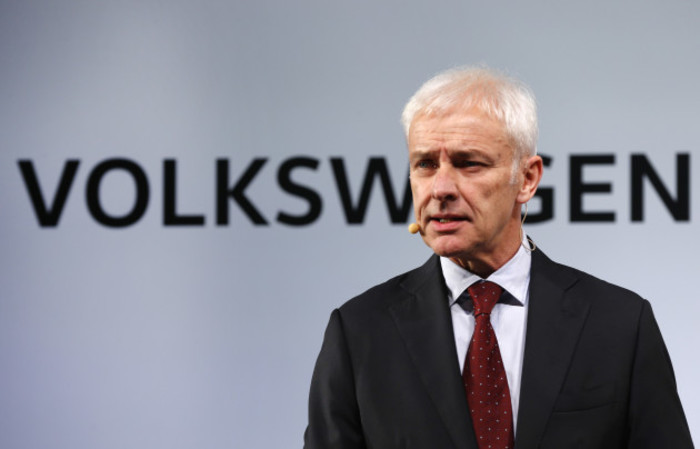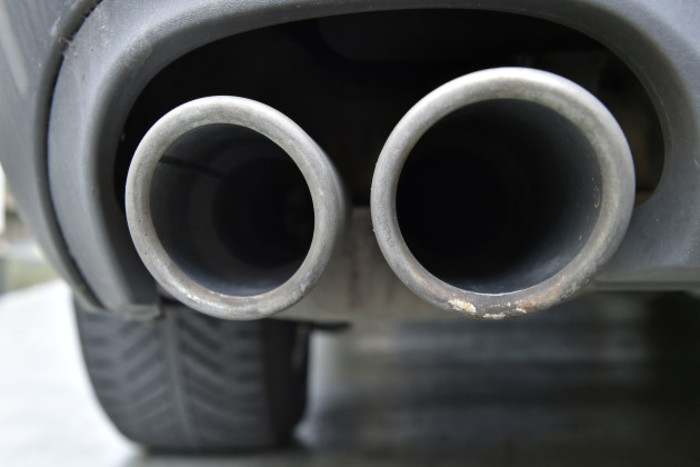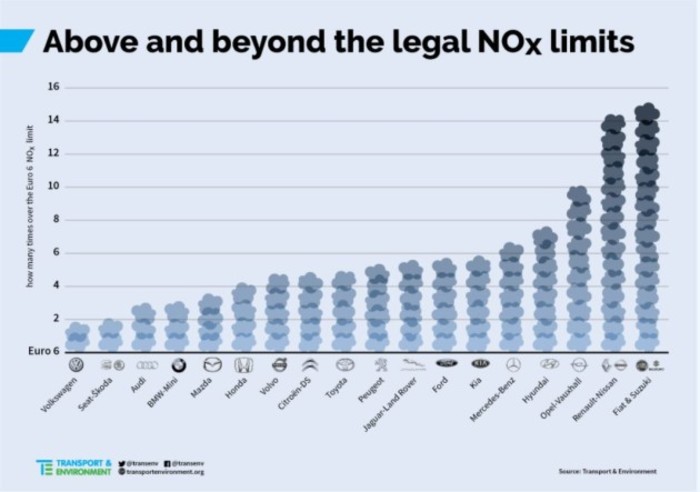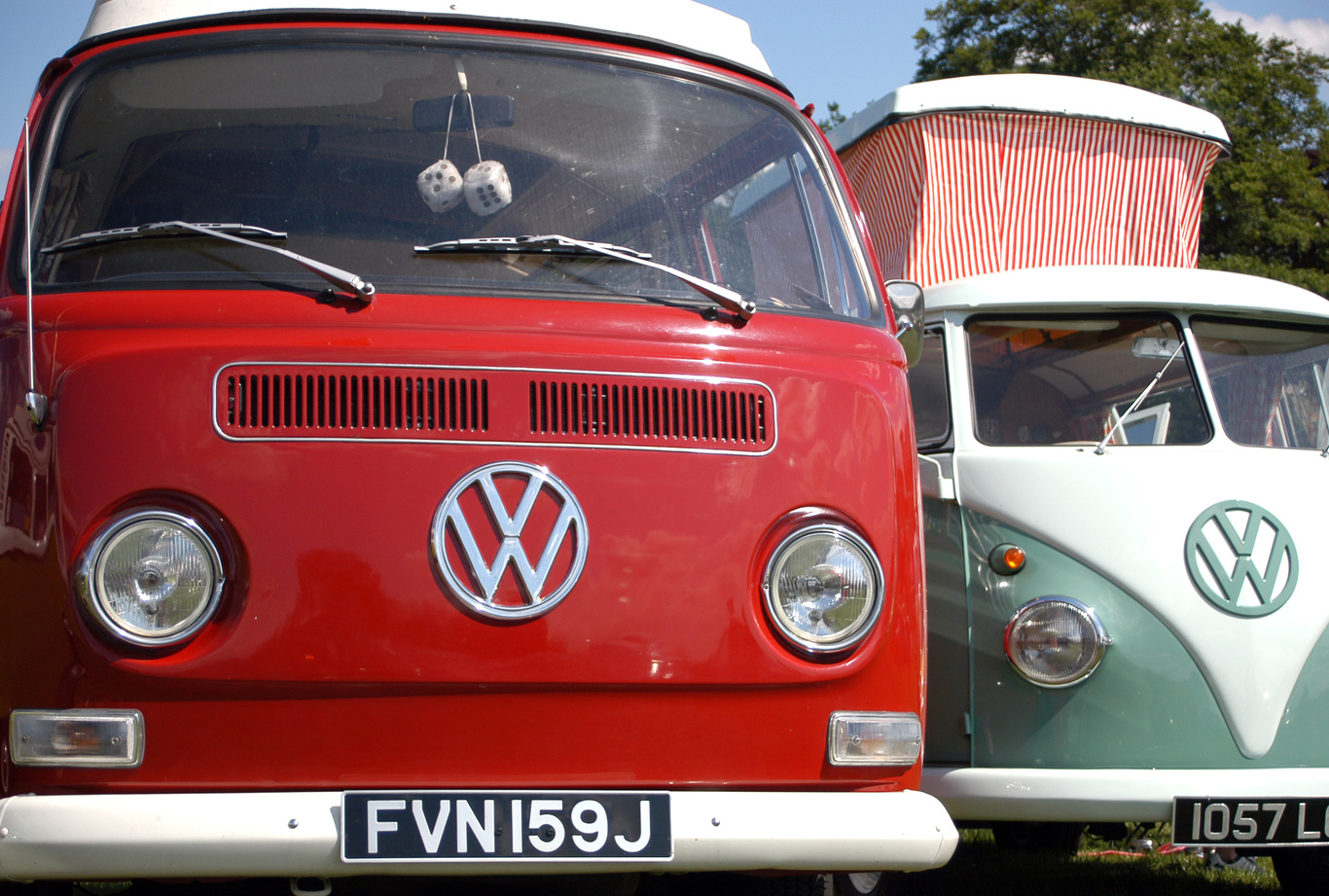Your crash course in... How Volkwagen's emissions scandal has failed to slow down
The car company was slapped with a $9.1 billion investor lawsuit this week.
A YEAR SINCE it was caught cheating emissions tests, car manufacturer Volkswagen is still reeling from what must be the most expensive scandal of its kind in motoring history.
The German company was issued a violation notice from the US Environmental Protection Agency (EPA) this time last year after the federal body discovered Volkswagen had fitted diesel vehicles with software that could cheat emissions tests, making the cars seem less polluting than they actually were.
An estimated 11 million Volkwagen-made cars worldwide were fitted with so-called “defeat devices”, with around 110,000 Irish motorists affected by the issue, including owners of Skoda, Audi and Seat cars, which are subsidiaries of the Volkswagen group.
The company was back in the Irish news recently after it launched a High Court challenge to halt a civil lawsuit filed in Castlebar District Court, where Roscommon woman Eithne Higgins is suing the car maker on the grounds that the emissions scandal could affect her road tax and diminish her car’s trade-in value.
Lawyers for Volkswagen claim that the Castlebar court lacks the jurisdiction to hear her complaint and argued that it should be moved to Dublin instead before a different judge.
Last week, the car company managed to stall the case until a judicial review has been completed, which will happen some time in October.
 Volkswagen CEO Matthias Müller
Volkswagen CEO Matthias Müller
Obviously, the Mayo trial is by no means the only court case the company has had to face in the last 12 months – and it certainly won’t be the last.
Let’s look at the cost the scandal has already had on Volkwagen’s finances and its reputation.
Investors lawsuit
Earlier this week, Volkswagen was confronted with a $9.1 billion lawsuit from investors who say they lost money because the company failed to disclose vital information on the scandal in good time.
Its share price plunged by more than 40% in the immediate aftermath of the EPA’s disclosure.
As the presumed one-year deadline for court submissions edged closer, 1,400 lawsuits were lodged to the Braunschweig regional court this week near Volkswagen’s head office in Wolfsburg, Germany.
The judicial district where the case is being heard doesn’t accept electronic filing for civil lawsuits, so processing mailed submissions has put immense pressure on the court’s resources.
Extra staff were recruited to manage the volume of submissions, which are expected to take up to four weeks to process.
The case itself is expected to last a number of years and fresh claims could be filed later on if lawyers successfully argue that the deadline to file suits is the end of 2018 rather than this week.
Consumer paybacks
The motoring giant recently agreed to settle an estimated $16 billion lawsuit from some of its US customers – that’s more than double the initial figure pundits estimated the scandal would cost.
As part of a buy-back scheme, Volkswagen agreed to re-purchase faulty cars, offer repairs and in some cases pay out up to $10,000 in compensation per car.

Until recently, the company has insisted that no such payment scheme would be set up in Europe - drivers on this side of the Atlantic were only offered repairs.
However, Bloomberg reported on Wednesday that Volkswagen has bowed down to pressure from EU regulators and consumer groups and agreed to launch an “EU-wide action plan”.
Under the plan, it will be more transparent with its European customers about how it is going to bring affected cars in line with emissions regulations and it has agreed to fix damaged cars within a certain time frame – all cars should be repaired by autumn 2017.
The EU consumer affairs commissioner Vera Jourova seemed satisfied and called it an “important step”.
Criminal charges
As well as facing a string of civil actions, Volkswagen could be hit with hefty fines if it is found guilty of criminal wrongdoing.
US authorities are currently investigating the company, but have yet to make formal charges.
Commentators reckon that it could come away with a reduced fine because the company’s lawyers have been cooperative.
Meanwhile Volkwagen engineer James Liang, who worked for the company for more than 30 years, pleaded guilty to conspiracy earlier this month. He admitted to designing the engine that could cheat emissions tests. His case is expected to be heard in January 2017.
While another German company, software manufacturer Bosch, is also being investigated for conspiracy in the US.
Bosch made the controversial technology that Volkswagen used to create its defeat devices and US authorities want to find out whether it was aware of how its software was being used.
Other polluters
“Dieselgate” – as it has been dubbed by the media – had a massive affect on Volkswagen’s reputation globally and resulted in the company being banned from selling diesel-engine cars in the US.
In a bid to improve its public image and win back some public support, Volkswagen has since announced that it is in talks with a Chinese company to accelerate production of its electric-powered cars.
It has been a never-ending public relations nightmare, but the group’s other brands such as Audi, Porsche and Skoda have still performed well in global sales and actually pushed Volkswagen ahead of the Toyota group for global sales in the first six months of 2016, according to Bloomberg data.
The company will also welcome a report by Brussels-based environmental group Transport & Environment – an umbrella for over 40 non-governmental organisations – which claimed that Volkswagen is not the worst polluter in Europe.
It said that not a single car manufacturer complies with European emissions rules and claimed that Fiat’s diesel cars by far the most polluting, emitting 15 times the permitted nitrogen oxide limit.

Overall cost
Richard Hilgert, an analyst at Morningstar investment research firm, has estimated that the impact of the emissions scandal could reach up to $60 billion, but the final cost is hard to measure at this point.
It all depends on the outcome of US federal investigations and the mammoth pile of lawsuits it faces, which could continue to grow over the next few years.
The company maintains it will re-establish itself as a transparent, orderly symbol of smart German engineering and probably fair to say Volkswagen isn’t wrote off just yet.






